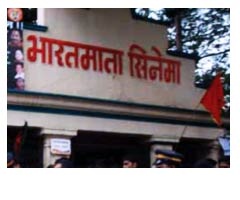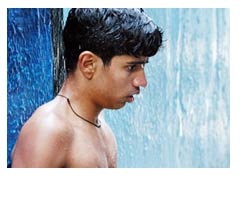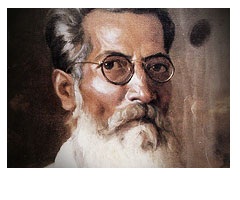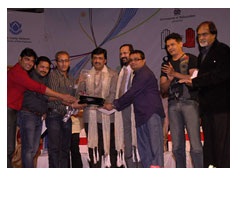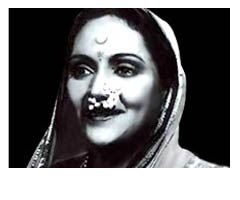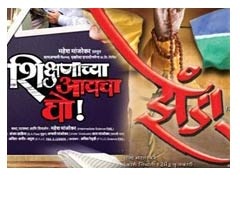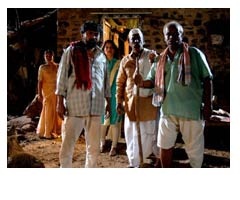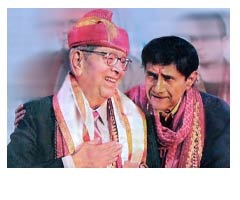Remembering Chi Vi Joshi and his Chimanrao
Chintaman Vinayak Joshi, popularly known as Chi Vi Joshi is one such name in Marathi literature, who brought humour through his most popular book ‘Chimanravache Charhat’.
Born on 19th January 1892 in Pune, he completed his studies from Nutan Marathi Vidyalaya and Fergusson College. Later, he acquired his Master’s degree in Pali and English literature from Mumbai University.
Mr. Joshi, who began his career as a teacher in Ratnagiri , Maharashtra, later shifted to Baroda and worked as a Professor there. He was also director of Archives at this princely state of Baroda. After his retirement he moved back to Pune and focused his attention on writing. His collection of writings include his research papers and more than 25 books in Marathi. As a writer, he was highly inspired by Jerone K Jerone, Barry Pain and P.G. Wodehouse. His most popular collection of stories on a popular character Chimanrao became so hit that they were adapted into Marathi films and TV serials.
Chi Vi Joshi shall always be remembered for his humourous stories. MMW pays tributes to this great writer on the occasion of his birth anniversary.
‘Bharatmata’ Ki Jai !
Last week, Marathi Movie world had appealed to Marathi film lovers for their strong support to save Bharatmata theatre, which is the only cinema house in Mumbai exclusively screening Marathi films for more than 70 years. The theatre located in the heart of Mumbai’s labour township of Lalbaug/ Parel, had received a big threat of demolition after receiving notice from NTC for expiry of the lease.
In a fresh development today, the centre’s minister Mr. Dayanidhi Maran, who paid personal visit to the site along with chief minister of Maharashtra, assured the marathi film lovers that Bharatmata theatre will remain at its place and would continue to screen marathi films. “ In my own state, we encourage our own Tamil films and I can understand the feelings of Maharashtra chief minister, when it comes to respecting the Marathi films,’’ said the minister. His assurance has ended the controversy hanging over this heritage of Mumbai.
‘Vihir’ for Berlin Film Festival
Umesh Kulkarni’s ‘Vihir’ has been selected for the Competitive section of the Berlin Film Festival to be held in early February 2010. This is Umesh’s second film after the critically acclaimed ‘Valu’. Amitabh Bachchan’s A.B. Corporation Ltd. are the producers of the film, who have ventured into Marathi film production, especially with the backing and support of Jaya Bachchan who was very impressed with Umesh’s short film ‘Girni’.
‘Vihir’ is a film about the coming of age of two teenage boys and the effect it has on one of them after an accidental drowning of his elder brother in the village well. The film stars Girish Kulkarni, Madan Deodhar, Alok Rajwade, and Renuka Daptardar.Produced by Ramesh Pulapaka the film’s music is composed by Mangesh Dhakde. DOP is Sudheer Palsane while Niraj Voralia the editor.
The film has already won an award at the Pusan International Film Festival in 2009. It was also appreciated universally at the MAMI International Film Festival .
The unforgettable Baburao Painter
He was born as Baburao Krishnarao Mestri in Kolhapur in 1890, but soon derived this name Painter, through his excellence in Painting. Baburao Painter was a leading painter of stage backdrops and worked those days for Sangeet Natak troupes and Gujarathi / Parsi theatre. His passion for films began after the release of ‘Raja Harischandra’, which made him buy a movie projector to turn a movie exhibitor.
In 1919, Baburao Painter with the support of his well wishers set up Maharashtra film Company in Kolhapur. His first film ‘Sairandhri’ based on Mr. Khadilkar’s play ‘Keechak Vadha’ was heavily censored for the scene on slaying of Keechak by Bheema; yet, the film invited both analytical and commercial praise. Baburao Painter, who was an institution in himself, with his multi-talent, seriously worked in all areas of the film from acting, direction, set designing camera besides set and poster designing . He lost his interest in film making after the arrival of Talkie films, as he felt that the visual impact that a silent film created was lost in a talkie film. Therefore, he shut down his own studio in 1931. However, he continued directing the films at the request of his friends till 1953.
Baburao Painter will always be remembered for his creations like ‘Sairandhri’, ‘Savakari Pash’ ‘Kalyan Khajina’, ‘Sinhagad’, ‘Sati Padmini’, ‘Sri Krishna Avatar’, ‘Bhakta Pralhad’ and ‘Netaji Palkar’. He directed his first talkie film ‘Usha’ for Shalini Cinetone, Kolhapur. The others to follow were ‘Rukmini Swayamvar’, remake of ‘Savakari Paash’, ‘Pratibha’, ‘Vishvamitra’ and ‘Mahajan’( 1953). He said good bye to this world on 16th January 1954. MMW pays sincere tributes to this legend from Maharashtra, on the occasion of his death anniversary.
PIFF receives State recognition
For the first time, this year’s Pune International film festival (PIFF) received the official recognition of the State government. The presence of chief minister of Maharashtra Mr. Ashok Chavan as the chief guest for the concluding function, made all the difference. The chief minister made an official announcement that from next year onwards PIFF will be called Maharashtra International Film festival. Mr. Chavan also assured all support to the film makers whose films received threats from Political censorship in spite of getting Censor’s clearance. “Those who have any objections, should approach the Censor board,” he said.
The following awards were presented on the occasion:
Sant Tukaram award for Best International Marathi film : ‘Natarang’
Prabhat’s award for Best International film : White Lightning’ ( Great Britain)
Best direction – International film : Maria Prokazkova ( Who is afraid of the wolf)
Best direction – Marathi film : Umesh Kulkarni ( Vihir)
Best actor : Atul Kulkarni ( Natarang)
Best screenplay : Renuka Shahane ( Rita)
Sp. Awards : Acting : Kishore Kadam ( Pangira)
Cinematography : Sudhir Palsane( Vihir)
Remembering Durga Khote on her birth anniversary
At the age of 26 she became a widow with the responsibility of bringing up her two young sons. Durga Khote decided to act in films during that period, around 1930, when female roles were performed by male actors. She soon joined Prabhat films and made a history of becoming the first heroine of a Marathi Talkie film – ‘Ayodhecha Raja’. The film became a hit and then there was no stopping for Durga Khote. In 1937, she produced and directed a film titled ‘Saathi’, getting the recognition as the first women to step into this role in Indian cinema.
Those days Durga Khote was very fond of Marathi theatre and was actively associated with the Indian People’s Theatre Association ( IPTA) and worked in several plays for the Mumbai Marathi Sahitya Sangh. In 1954, she notably performed the role of Lady Macbeth, in V.V. Shirwadkar’s Marathi adaptation of Macbeth, as Rajmukut- ‘The Royal Crown’, along with Nanasaheb Phatak . She performed in about 200 Hindi and Marathi films and her performance in ‘Dhartichi Lekre’ brought her Maharashtra state award in 1970. But, before that she was homoured with Sangeet Natak academy award in 1958 and The ‘Padmashri’ from Indian Government in 1968. Later in 1983 Government of India bestowed upon her the prestigious Dadasaeb Phalke award in appreciation of her service to the film industry.
Durga Khote will always be remembered for her notable performances in films like ‘Moghul-e-Azam’, ‘Bharat Milaap’ ‘Bidaai’, ‘Bobby’, ‘Bawarchi’ & ‘Abhimaan’. After retiring from films, she wrote her autobiography in Marathi, which was well received. The same was also translated into English by Shanta Gokhale with the title ‘I, Durga Khote’. She spent her last days in Alibaug, near Mumbai. MMW pays tributes to this legendary actress.
Political Censorship blocking the progress of Marathi films
Last week it was ‘Zenda’ the marathi film, which was stalled for projecting a character resembling a Maharashtra Minister. Now, another marathi film ‘Shikshanachya Aaicha Gho’ faces a threat from a Political outfit, for using such a title to the film. It is rather surprising that Political censorship is coming in the way of a film, which has already received censor’s certification and is almost due for release. It looks like that blocking the release of a film and issuing threats has become a new political stunt.
“If the same political outfit is so much against the title of this film, why they were sitting quiet for so long ?” remarked the film maker Mahesh Manjrekar in a TV interview yesterday. And, the stand of the director not to bow down to the pressure seems to be justified. He has even approached the chief minister of Mahrashtra, who has assured him all the help. “If any film which has been passed by the censors, need any kind of police protection at the cinema halls during the release, in anticipation of any threats, the same will be provided,” assured the CM while addressing the media.
Looking at the objection raised towards the film’s title, the director of the film has already made it clear that it was with an intention to express displeasure over the existing educational system which is putting psychological pressure on students from school and parents. He has used the same in the context of referring today’s taxing educational system and not with the intention of abusing Mother. But, as we see it happening these days, the progress of Marathi film and the creativity of the film maker is blocked by our own Marathi people. Instead of watching the film first, there has been unnecessary hue and cry before the release of the film.
Where were these objections when late Dada Kondke made films with double meaning dialogues? Why the same outfit did not object to the dialogues and abuses in the same Konkani language used in popular Marathi play ‘Vastraharan’ which has almost crossed 5000 shows? In fact, this music based drama contains more bad words and abuses, worst than the title of this film and is watched by children along with their parents.
Moreover, this popular play was also watched by all political leaders in Maharashtra during its 5000th show held in Shanmukhanand Hall recently. If the abuses and bad words in the same Konkani language are accepted by our leaders and large number of drama enthusiasts in Maharashtra, why object to these Konkani words ‘Aaicha Gho’?
‘Bharatmata’ needs our strong support for survival
At a time when Marathi film industry is prospering with quality films and good business in theatres, ‘Bharatmata’ the oldest theatre in Mumbai is facing the crisis. The theatre owners have been served notice by NTC after expiry of the lease. Though the Chief Minister of Maharashtra has assured all necessary help to save this theatre and marathi cinema and if possible also take over the same. However, All India Marathi film Mahamandal have in their plea suggested that the present theatre owners may only be allowed to manage this theatre, with Maharashtra government seeking the support of Central government to request NTC for permitting the theatre to remain there.
Actually, the protest was organized by all Producers/directors of Marathi cinema with the support of political parties; but very few celebrities like Smita Talwalkar, Suhas Bhalekar, Sandeep Kulkarni, Vijay Kadam from Marathi cinema turned up. Labour Union leader Datta Iswalkar and MNS leader Bala Nadgaonkar were the only leaders physically present to support for the cause. This only indicated that Marathi film industry was not united to fight their own battle.
‘Bharatmata’ which is housed in the populated middle class and lower middle class township Lalbaug/ Parel, is the only entertainment source for marathi cinema lovers. Even if, there’s any such proposal like multiplex coming at this place, the local residents just can’t afford to watch cinema there. Will the Government of Maharashtra preserve this oldest cinema theatre and give justice to the Marathi cinema lovers ? Can we see a strong support coming from marathi film lovers to save ‘Bharatmata’?
‘Pangira’ – Changing scenario of a village
‘Pangira’ is a film that explores the farmer’’s problem in the agricultural sector which accounts for 70% of country’s economy. The farmer is besieged with problems, in a village called ‘Pangira’ where crops like sugarcane and banana which require a lots of water to sustain . But the farmers don’t get the right price for their produce and are exploited by middlemen in the wake of globalization.
‘Pangira’ is one of the many villages which faces these problems like water wastage, lack of rainfall and poor soil. In this village arrives a student – Sumitra, to study the soil quality for his thesis, and he comes across a man called Murar Patil who wants to save ‘Pangira’.
The film has tried to question, whether it is possible for Sumitra and Murar Patil to achieve Dr.Babasaheb Ambedkar’s constitutional and Mahatma Gandhi’s concepts of an ‘ideal’ village ? ‘Pangira’ directed by Rajeev Patil and written by Sanjay Krishnaji Patil is based on the much acclaimed novel of Vishwas Patil. The film stars Chinmay Mandlekar, Santosh Juvekar and others.
Lifetime achievement award for Dr Shreeram Lagoo
Dr. Shreeram Lagoo was bestowed with the Lifetime achievement award on the inaugural day of Pune International Film festival. At a glittering function held at Pune’s Balgandhrva Rangamandir on 7th January 2009 , the Bhishma Pitamaha of Marathi Movies and Dramas, received this honour from Evergreen Dev Anand, who was present as a chief guest on the occasion. Incidentally, Dr. Lagoo, who had performed in more than 100 Hindi films playing a variety of roles , had also performed in Dev Anand’s ‘Pyar ka Tarana’ and ‘Sau Crore’.
Dr. Lagoo, who began his career in films with V. Shantaram’s hit Marathi film ‘Pinjara’ in the year 1972, acted in almost 150 Hindi and Marathi films over a period of 30 years. He also directed a film ‘Zaakol’ during the year 1980. This award reminds one and all about his contribution to film industry.

